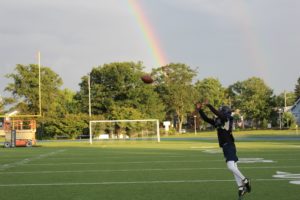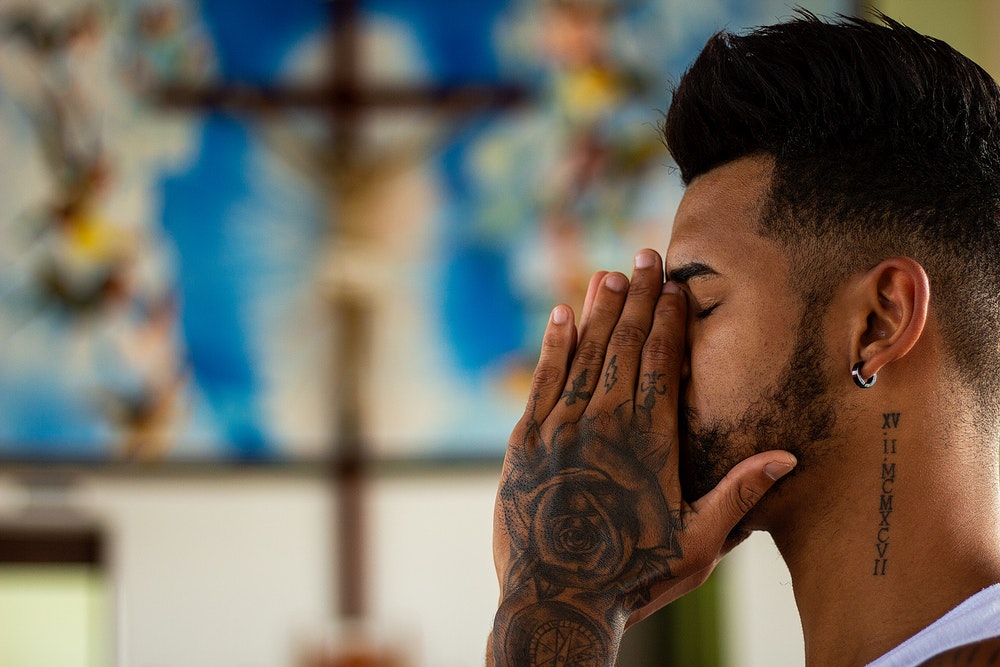What does it mean to be sitting on the sidelines? It means we’re not in the game. In sports, there’s a limited amount of athletes who can be in a game at one time, and there are many reasons why certain ones have to sit out: they are injured, they aren’t starters, they’re lower on the depth chart, they don’t quite have the skills, or they’re just fans.
But what about those times when we are healthy, skilled, and highly capable enough to be in the game, but we still choose not to go in?
This is rare, but it does happen. Maybe we’re afraid, not comfortable with a situation, or we’re losing and don’t want to be blamed for it. Sometimes, it’s just more comfortable to sit on the sidelines or be part of the crowd as a spectator. But, to me, this goes against what we are called to be as Team Jesus, God’s competitors.
Every Player on Team Jesus is Called to Get in the Game
 As true competitors or everyday Christians, we should want to be in on the action, and when we can’t it burns on the inside. Whether we feel capable or not, if Jesus Christ (our coach) calls us up and gives us playing time, it is our job out of obedience to not sit on the sidelines but to get in the game. If we have absolute faith in Him and know that He will show us the way, it is pleasing to Him. Plus, as it says in His Word, God has not created us to be fearful. If we believe that, then we know that fear is straight from the enemy.
As true competitors or everyday Christians, we should want to be in on the action, and when we can’t it burns on the inside. Whether we feel capable or not, if Jesus Christ (our coach) calls us up and gives us playing time, it is our job out of obedience to not sit on the sidelines but to get in the game. If we have absolute faith in Him and know that He will show us the way, it is pleasing to Him. Plus, as it says in His Word, God has not created us to be fearful. If we believe that, then we know that fear is straight from the enemy.
Second Timothy 1:7 tells us that God didn’t give us a timid spirit, but one of power, love, and self-discipline. If we’re called into the game, are we going to worry about our talents, the enemy, or are we going to be disciplined and run in because God has the faith in us to put us in the game?
Through Jesus Christ, we are given the keys to fully unlock all the confidence we need. As it says in Philippians 4:13, we can do all things through Him who gives us strength. So, get off the sidelines, focus on Him, and sprint toward the action. Think about it.
So, What’s The Play Call?
- Do you ever fear getting in the game? Why or why not?
- How can you gain strength and confidence next time you are given an opportunity for something?
- How are you reacting to a current difficult situation you are facing? Are you placing it at God’s feet? Do you really trust Him?
- Is fear getting in the way of God’s plans for you?




